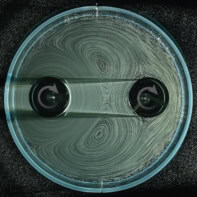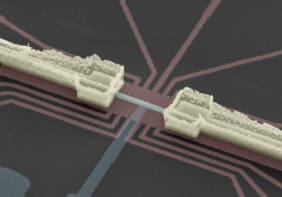A German physicist who used beer to teach students about the analysis of experimental data has received the 2002 Ig Nobel prize in physics. Arnd Leike of the Ludwig Maximilians University receives one of the awards - which are given for research that cannot or should not be repeated - for demonstrating that beer froth obeys the mathematical law of exponential decay. Leike’s work was published in the European Journal of Physics and later highlighted in Physics World.
Leike used three types of beer in his experiment – Erdinger Weissbier, Augustinerbräu München and Budweiser Budvar. To collect his data he filled a cylindrical beer mug with a freshly opened bottle of beer and then measured the height of the froth 15 times over a period of six minutes. He then used a chi-squared test to check if his prediction that the froth decays exponentially agreed with the data. At the time Leike said that he wrote the paper because he felt that students did not understand the techniques that must be used to check the consistency of theoretical models with experimental data. “Of course,” he added, “I drank the beer afterwards.”
This is the third time in less than a decade that the physics Ig Nobel has been awarded for a paper published in the European Journal of Physics. Robert Matthews was recognized in 1996 for a paper which showed why toast often lands buttered-side-down when it is dropped, and two years ago Andre Geim and Michael Berry were recognized for their research into the magnetic levitation of living objects – most famously a frog.
The Nobel Prize for Physics will be announced tomorrow morning.



